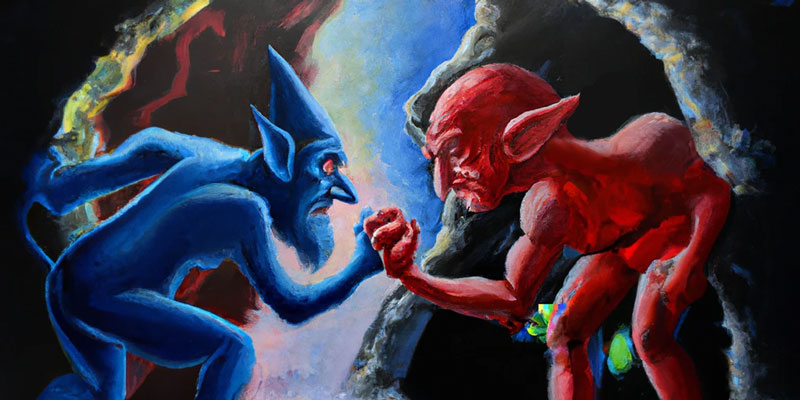
Suppression is always for the other side (especially when they’re conservatives).
A new study by criminology professors from the University of Rhode Island and Rutgers University — Luzi Shi and Jason Silver, respectively — produces some interesting results, although the URI press release is arguably inaccurate. Here are the headline and lede:
Americans favor punishing only protestors they disagree with, new research shows
Study finds Americans support harsh punishment – and even government repression – for protestors and protest movements on the opposite of the partisan spectrum
While charts from the report might seem to support that characterization (and while one can understand the desire of people in New England academia to shape the conclusion to be more comfortable for their audience), the true finding is substantially different. Yes, generally, groups tend to be more supportive of suppression and punishment of those in other groups, which isn’t surprising, but the only group that, collectively, supports repression and harsh punishment is the “very liberal” group, and only when thinking about “MAGA protesters.”
The axes are the key. For the charts about police and legal repression, anything less than a three is opposition, so shifting from 1 to 3 is more-accurately characterized as being “less opposed,” not “more supportive.” It’s also important to be clear that “police repression” is simply defined as some sort of police or military control of the protest, which is very different from “legal repression,” which is defined as “banning future protests altogether” and “banning political action by groups with this goal.” The former implies keeping order and arresting people who violate the law while protesting. The latter is proactive elimination of civil rights.
The study finds that, as a group, conservatives never support “legal repression,” whereas liberals do. Conservatives are also less supportive of “police repression” even of their ideological opponents.
The question of punishment is a bit more difficult, because the study’s methodology is questionable. The authors average give five forms of punishment: nothing, a fine, probation, prison less than five years, and prison over five years. The authors assign numbers from 1 to 5 for each of these and then average them, but it isn’t obvious that these are even ordinal categories (meaning they can be ranked), let alone interval categories that can be averaged.
Putting this problem to the side, however, one interesting observation emerges: The strongest support for imprisonment is from liberals when imagining a MAGA protester hitting a police officer with a rock. BLM-supporting liberals are the party of “defund the police,” yet they are less incensed by assaults on innocent bystanders than on officers. One wonders whether this response is conditioned by the media narrative of “insurrection.” The liberals react strongly, in other words, because the picture closely matches an event to which they’ve been conditioned to respond.
The possibility of such conditioning is reason to be wary of the current news narrative, which (as this study supports) may be conditioning progressives to support broad suppression of people who disagree with them politically.
Dangerous ground.
Featured image created by Justin Katz using DALL-E 2.

